
 Flash News
Flash News
Germany extends the stay of its troops in Kosovo
Greek police raid Albanian cells in Korydhalos, discover arsenal and drugs at "prison mafia boss"
The famous soprano of TKOB passes away prematurely
Sailing suspended due to bad weather in Vlora
Megaoperation/ Group based in Durres, names of Albanian traffickers revealed

Israel's success in the public vote at last weekend's Eurovision Song Contest has prompted calls from a number of countries to review the results and voting system.
Singer Yuval Raphael came out on top in the viewers' vote on Saturday with her ballad "New Day Will Rise", but finished second overall behind Austria when the jury's results were also taken into account, writes the BBC .
Broadcasters in Ireland, the Netherlands, Belgium, Spain, Iceland and Finland have since raised concerns or questions about the public vote, with some calling for an audit.
Eurovision organizers, the European Broadcasting Union (EBU), said the voting had been independently checked and verified, and that they took any concerns seriously.
Israel was ranked 14th by national juries, but rose in the rankings thanks to the results of telephone and online voting.
Belgium, the Netherlands, Spain and the United Kingdom were among the countries whose viewers gave Israel the maximum 12 points, while Ireland and Finland gave 10.
Irish broadcaster RTE has called for a complete breakdown of the vote from the organisers.
This came after Spanish broadcaster RTVE said it would demand an investigation into the results and a review of the televoting system.
Katia Segers, a Flemish MP, said: "A system in which everyone can cast up to 20 votes is a system that encourages manipulation.
"If this manipulation has occurred in our country and in all other participating and non-participating countries, it should be investigated."
Political tensions
A spokesman for Flemish public broadcaster VRT said: "We have no indication that the counting of televotes was not carried out correctly, but we are demanding full transparency from the EBU.
"The question is above all whether the current system guarantees a fair reflection of the opinion of viewers and listeners."
On Tuesday, Dutch public broadcasters Avrotros and NPO issued a statement saying the contest was "increasingly influenced by social and geopolitical tensions."
Israel's inclusion "raises the question of whether Eurovision still truly functions as an apolitical, unifying and cultural event," they said.
Latest news



Germany extends the stay of its troops in Kosovo
2025-05-21 22:19:22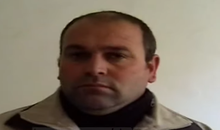
Journalist: Xhevdet Troplini alongside a politician
2025-05-21 22:00:07
Amnesty International: Camps in Albania, a reflection of an inhumane system
2025-05-21 21:49:09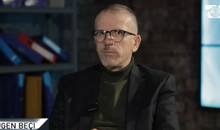
This is the first Albanian justice collaborator
2025-05-21 21:39:45
Bitcoin breaks historical record: Reaches $109,302
2025-05-21 21:36:06
Raped by colleague at the civil registry office, victim fired from job
2025-05-21 21:08:47
Hyn në fuqi vendimi i BSH/ Kredia për blerje banese kufizohet nga 1 korriku
2025-05-21 21:04:37
“Nga dhuna e burrit humba fëmijën”, nëna e dy të miturve kërkon drejtësi
2025-05-21 20:50:23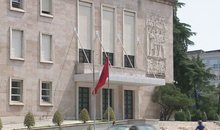
The government extends the stay of Ukrainians in Albania
2025-05-21 20:45:04
Social networks: Friend or foe of our personal relationships?
2025-05-21 20:22:33

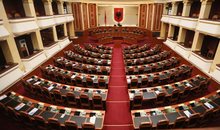
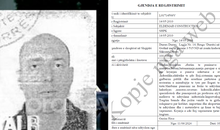


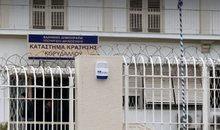

The famous soprano of TKOB passes away prematurely
2025-05-21 18:27:50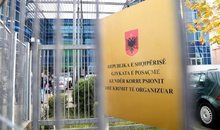

Donald Trump's son says he might one day run for US president
2025-05-21 17:53:20

Israel's Eurovision result raises questions about voting
2025-05-21 17:23:29
Florence, two Albanians arrested with 23 kg of cocaine
2025-05-21 17:03:20
Sailing suspended due to bad weather in Vlora
2025-05-21 16:58:12
The abolition of the vote as a triumph of banality
2025-05-21 16:41:56
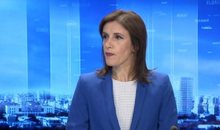

Operation "Bridge"/ Ekil Nderjaku is sentenced to "prison arrest"
2025-05-21 16:08:32

Who needs more physical exercise: Women or men?
2025-05-21 15:43:25
Former Ukrainian politician shot dead near a school in Madrid
2025-05-21 15:32:18
Operation "Bridge"/ Ekil Nderjaku is given another security measure in his cell
2025-05-21 15:22:37
Chocolate will reach high prices! Cocoa production in serious crisis
2025-05-21 15:11:34




"Grandma", "beast", the nicknames used by Albanian and Italian traffickers
2025-05-21 14:26:47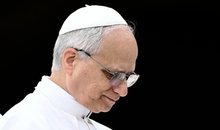
Pope Leo asks Israel to allow humanitarian aid into Gaza
2025-05-21 14:18:42

Document/ How did Nuredin Dumani hit Xhevdet Troplini's group of traffickers?
2025-05-21 14:05:45

Megaoperation/ Group based in Durres, names of Albanian traffickers revealed
2025-05-21 13:42:44
Former politician shot dead outside his children's school
2025-05-21 13:39:27
A ka BE-ja ende mjete efektive për t'i shkaktuar dhimbje Rusisë?
2025-05-21 13:26:33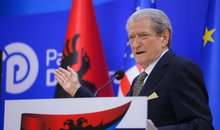
Berisha: We will never accept such choices, no one can force us to accept them
2025-05-21 13:25:29
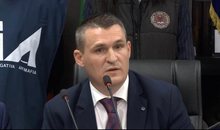
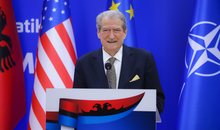


A 24-year-old man was found dead in Lake Farka.
2025-05-21 12:37:34

The abolition of the vote as a triumph of banality
2025-05-21 12:18:53

The only name for May 11th is: Electoral Terrorism
2025-05-21 12:06:25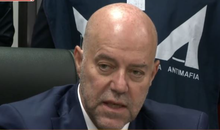


Letter-order from Belgium, SPAK checks 4 premises, 33-year-old arrested in Berat
2025-05-21 11:37:31
Hajj 2025/ Everything you need to know about the annual pilgrimage to Mecca
2025-05-21 11:28:43

The appeal of the GJKKO leaves the head of the Road, Roven Zeka, in prison
2025-05-21 11:02:16

Kuçova! 66-year-old man sexually harasses 17-year-old girl
2025-05-21 10:41:40

Mental disorders and obesity threaten adolescents
2025-05-21 10:22:04

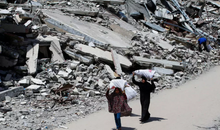
19 killed in Gaza by Israeli attacks, most of them children
2025-05-21 09:50:03
Tabaku: SP seeks to usurp independent institutions
2025-05-21 09:40:19



Is the Socialist Party's supermajority a danger to democracy?
2025-05-21 09:01:54


Video/ Explosives found at Veliera in Durrës, near Vangjush Dako's apartment
2025-05-21 08:32:15
The lack of flights at Vlora airport jeopardizes tourism guarantee contracts
2025-05-21 08:22:54
Horoscope, what do the stars have in store for you today?
2025-05-21 08:09:02

Morning Post/ In 2 lines: What mattered yesterday in Albania
2025-05-21 07:47:36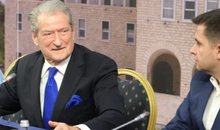

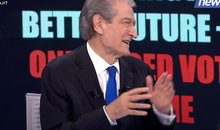

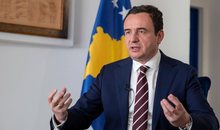

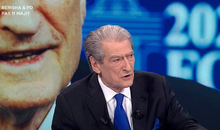
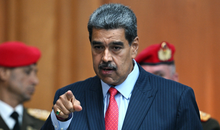
38 people arrested for conspiracy in Venezuela, among them an Albanian
2025-05-20 21:18:15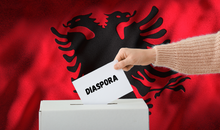

Torrential rainfall hits southeastern France, 3 confirmed victims
2025-05-20 20:49:14
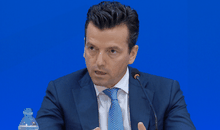
Shehaj: Our votes will never unite with Edi Rama
2025-05-20 20:24:31
The ship "Butrinti" rescues 13 migrants in the Aegean Sea, including 2 children
2025-05-20 20:01:12
Video/ Revolt in Corfu prison, Albanians and Georgians set fire to cells
2025-05-20 19:51:04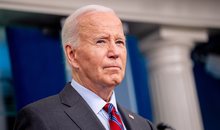
Biden diagnosed with cancer, questions about his health in the White House
2025-05-20 19:37:01


